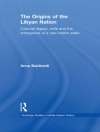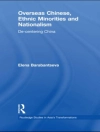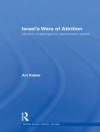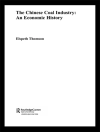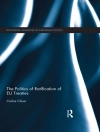Studies in Applied Interpersonal Communication offers solutions for communication problems that erupt in our daily lives. By focusing on socially meaningful applied research in communication, this book offers a new direction for interpersonal communication studies. Featuring original studies that are practical and relevant, chapters provide readers with a balanced combination of rigorous research with pragmatic application. This book will generate enthusiasm among students and scholars and inspire future research that moves beyond the theoretical and toward the practical.
Key Features and Benefits
- Includes solid research by a distinguished group of communication scholars
- Clarifies the connections between research results and prescriptive application
- Reveals the importance of conducting research targeting the communication concerns of the general public
- Provides practical advice that is meaningful to everyday lives and encourages future research that can benefit society
This provocative book is an ideal supplement for graduate or advanced undergraduate courses such as Interpersonal Communication, Relational Communication, Empirical Research Methods, and Applied Communication.
Table des matières
I. Special Communication Situations
1. Managing Unwanted Pursuit – Brian H. Spitzberg, William R. Cupach
2. Conditions that Determine the Fate of Friendships After Unrequited Romantic Disclosures – Michael T. Motley, Larissa J. Faulkner, Heidi Reeder
3. Interactive Aspects of Interpersonal Guilt: Relational Pragmatics and Consequences – Lisa A. Miczo, Judee K. Burgoon
4. Behaviors that Determine the Fate of Friendships After Unrequited Romantic Disclosures – Michael T. Motley, Heidi Reeder, Larissa J. Faulkner
II. Occasional Situations
5. Communication During Serial Arguments: Connections with Individuals′ Mental and Physical Well-Being – Michael E. Roloff, Rachel M. Reznik
6. Unwanted Escalation of Sexual Intimacy: Pursuing a Miscommunication Explanation – Michael T. Motley
7. ‘Good’ and ‘Bad’ Advice: How to Advise More Effectively – Erina Mac George, Bo Feng, Elizabeth R. Thompson
8. Forgiving Communication and Relational Consequences – Vincent Waldron, Douglas Kelley, Jessica Harvey
9. Verbal Coercion to Unwanted Sexual Intimacy: How Coercion Messages Operate – Michael T. Motley
III. Everyday Situations
10. What Counts as Effective Emotional Support? Explorations of Individual and Situational Differences – Brant R. Burleson
11. Understanding the Communication and the Relational Dynamics of Humor – Jess Alberts, Jolanta Drzewiecka
12. Facework and Nonverbal Behavior in Social-Support Interactions Among Romantic Dyads – Nathan Miczo, Judee K. Burgoon
13. Interpersonal Emotional Competence – Sandra Metts, Brandon H. Wood
14. Television Viewing and Relational Maintenance – Christina G. Yoshimura, Jess K. Alberts
A propos de l’auteur
Michael T. Motley (Ph.D., Pennsylvania State University; M.A. & B.A., University of Texas) conducts research concerned with the interpersonal tactics and message strategies that individuals use in the context of problematic social interactions (for example, sexual harassment, unrequited romance, sexual aggressiveness/date rape, and disclosures concerning sexually transmitted diseases). Motley is best known for his work on laboratory-induced slips of the tongue (e.g., Freudian slips) as indicators of cognitive processing in speech. He won the 1987 and 1990 Aubery Fisher Awards for the best article in Western Journal of Communication. In 1987 he was recognized by a special Eastern Communication Association panel as being among the ‘Top 1%’ of the discipline′s scholars in research productivity during the 1980′s. He has been an associate editor for several journals and has held several offices within National Communication Association and Western States Communication Association. Motley has taught both graduate and undergraduate level courses concerned with interpersonal message strategies and tactics.



